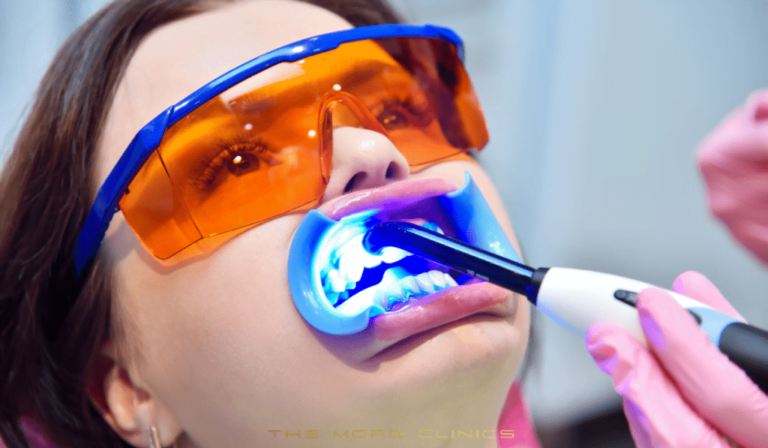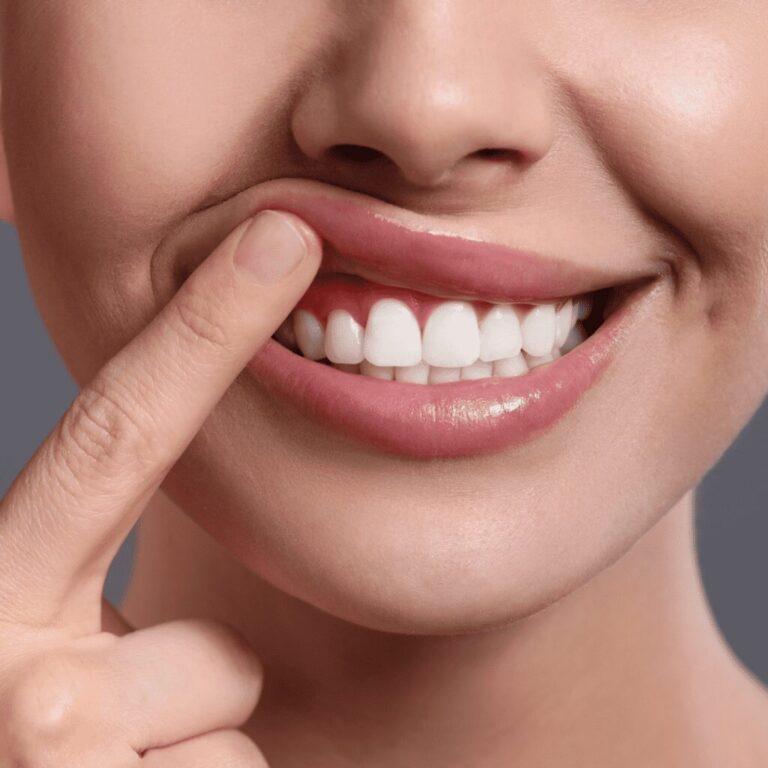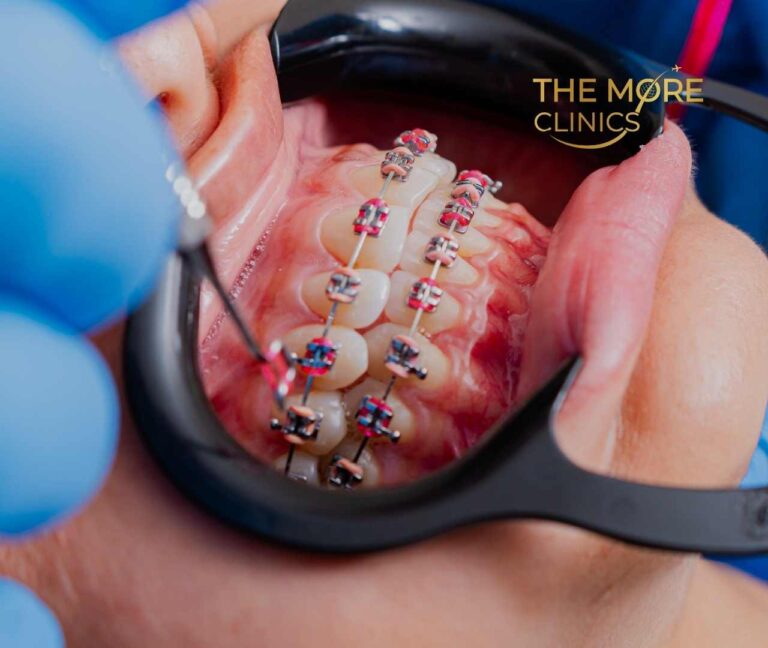Tooth Sensitivity After Crown: All answers in Guide
A new dental crown can commonly be tempered by the unexpected sensation of post-treatment tooth sensitivity. For many patients, sensitivity after crown treatment can come as a surprise, as they associate crown placement with immediate improvement in tooth health and function. In this comprehensive guide, we’ll learn why you may feel your teeth tight from crown and the potential causes of capped tooth pain or dental crown pain, how to manage sensitivity after crown, and crucial tips for prevention that go beyond the dentist chair.
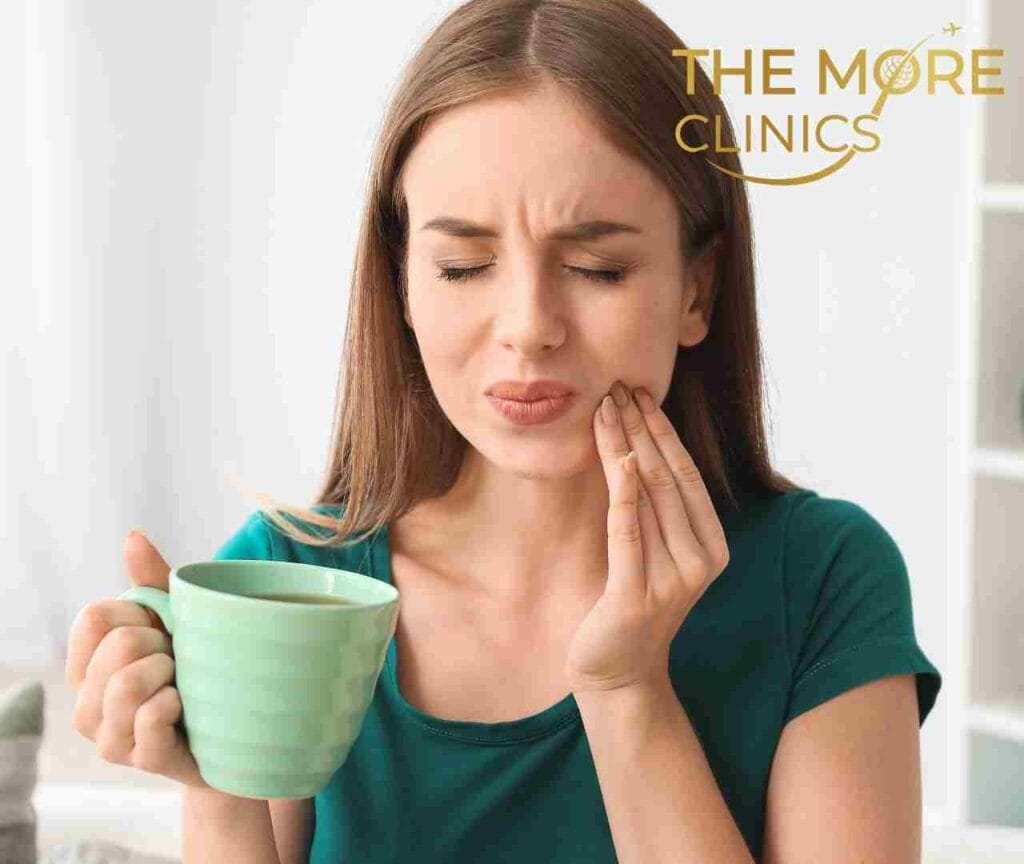
Potential Causes of Tooth Sensitivity After Crown
The peak of post-crown sensitivity is typically experienced a few days after the procedure and can persist for a few weeks. This sensitivity can manifest as a twinge of crown pain or discomfort when consuming hot or cold food and beverages, or even breathing cold air. But this is generally temporary crown pain, and the tooth should eventually adapt to its new crown.
Other Possible Causes
- Poorly Fitted Crown: If the crown is not placed correctly, it can leave room for bacteria to accumulate and irritate the underlying tooth structure. This irritation can lead to increased sensitivity and dental crown pain.
- Nerve Irritation: During the preparation process, some patients may experience nerve sensitivity as a result of drilling or other procedures. While this is usually temporary and subsides after a few days, in rare cases, it can persist and require further treatment such as root canal treatment.
- Gum Recession: Crown placement may expose some of the tooth’s root structure, which is not protected by enamel. This can lead to increased sensitivity as the nerves and tissues in this area are more exposed.
- Bite Alignment Issues: If your dental crown changes the way your teeth come together, this can lead to increased sensitivity. A misaligned bite can put undue pressure on crowned teeth.
- Nerve Inflammation (Pulpitis): If the dental pulp is aggravated during the crown placement, it can lead to inflammation of the nerve, resulting in heightened sensitivity.
- Allergic Reactions: Although rare, some people may be allergic to the metals or ceramics used in crown fabrication, leading to various symptoms, including sensitivity. Also some types of cements used to secure crowns can cause sensitivity after crown treatment.
Check the Detailed Guide of “Dental Crown Pain or Capped tooth pain” by The More Clinics.
Common Expressions about Dental Crown Pain or Sensitivity After Crowns are explained by The More Clinics Dental Team
Some common expressions by patients to describe pain, discomfort, or sensitivity after crown treatment are listed as questions:
- “Tooth pain under crown that comes and goes!”
- “Pain from a temporary crown”
- “Gum irritation around a crowned tooth”
- “Why does my crown hurt when I put pressure on?”
- “Why i feel Tightness in teeth after a crown “
- “Throbbing tooth pain following crown placement”
- “Why is my crown sensitive to pressure touch? “
- “Crown sensitive to cold / hot”
These types of discomfort or pain following crown procedures may not always indicate a specific underlying issue. There are often several factors that can help identify the potential cause of issues with your dental crown pain or sensitivity. A thorough evaluation by a dentist is essential to identify the cause and provide appropriate treatment.
As The More Clinics Turkey dental team we will answer some of the common questions and concerns regarding dental crown pain or sensitivity after crown treatment.
Q: Can a poorly fitted crown be fixed and what does proper crown placement look like?
A: Absolutely, a poorly fitted crown can be corrected by your dentist. Proper crown placement should feel comfortable, align well with your bite, and securely fit over the tooth. If it feels off, consult your dentist for adjustments.
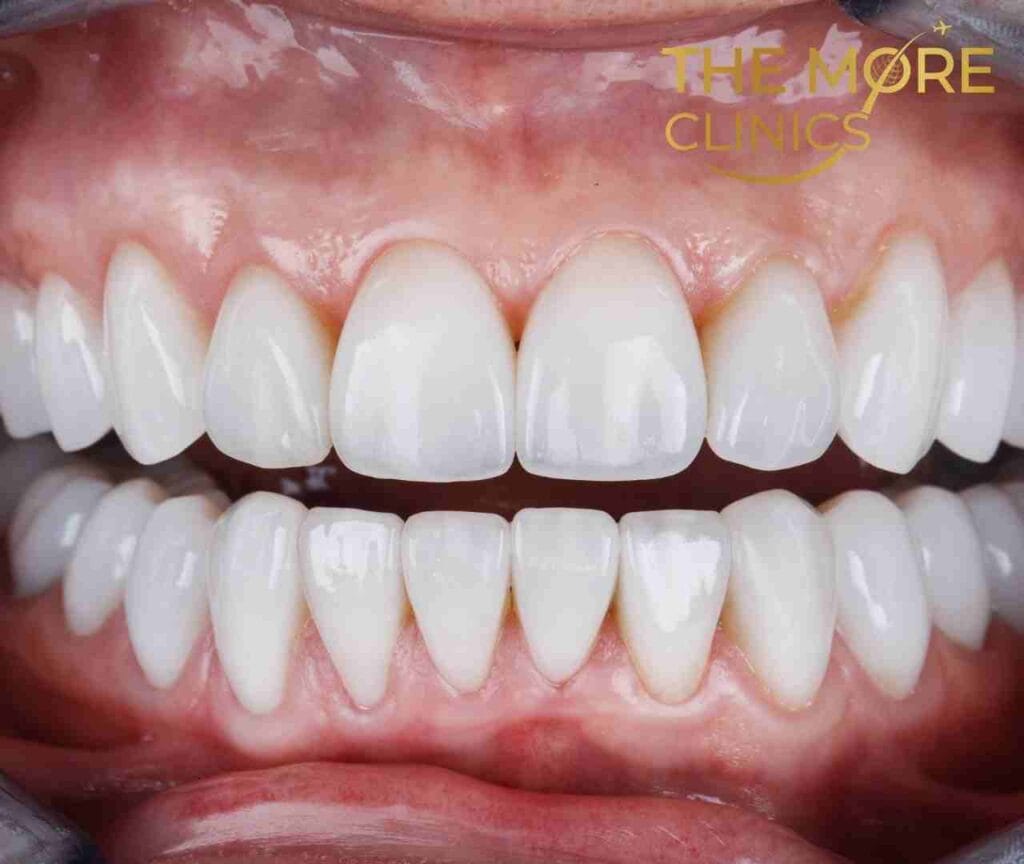
Q: Why do I experience tooth pain under the crown that comes and goes?
A: Tooth pain that comes and goes under a dental crown may indicate a few possible causes such as an ill-fitting crown, recurrent decay, or an infection. It is essential to schedule an appointment with your dentist to evaluate the issue and determine the appropriate course of action.
Q: What causes pain from a temporary crown?
A: Pain from a temporary crown can occur due to sensitivity of the exposed tooth structure, temporary cement irritation, or improper fit. Temporary crowns are designed to be temporary and may not provide the same level of comfort as the final crown. If you are experiencing significant pain, it is crucial to contact your dentist for an evaluation.
Q: Why do I have gum irritation around a crowned tooth?
A: Gum irritation around a crowned tooth can be caused by several factors, including improper crown margin placement, plaque accumulation, or gum disease. Your dentist will assess the area and recommend appropriate treatment, which may involve adjusting the crown or improving oral hygiene practices.
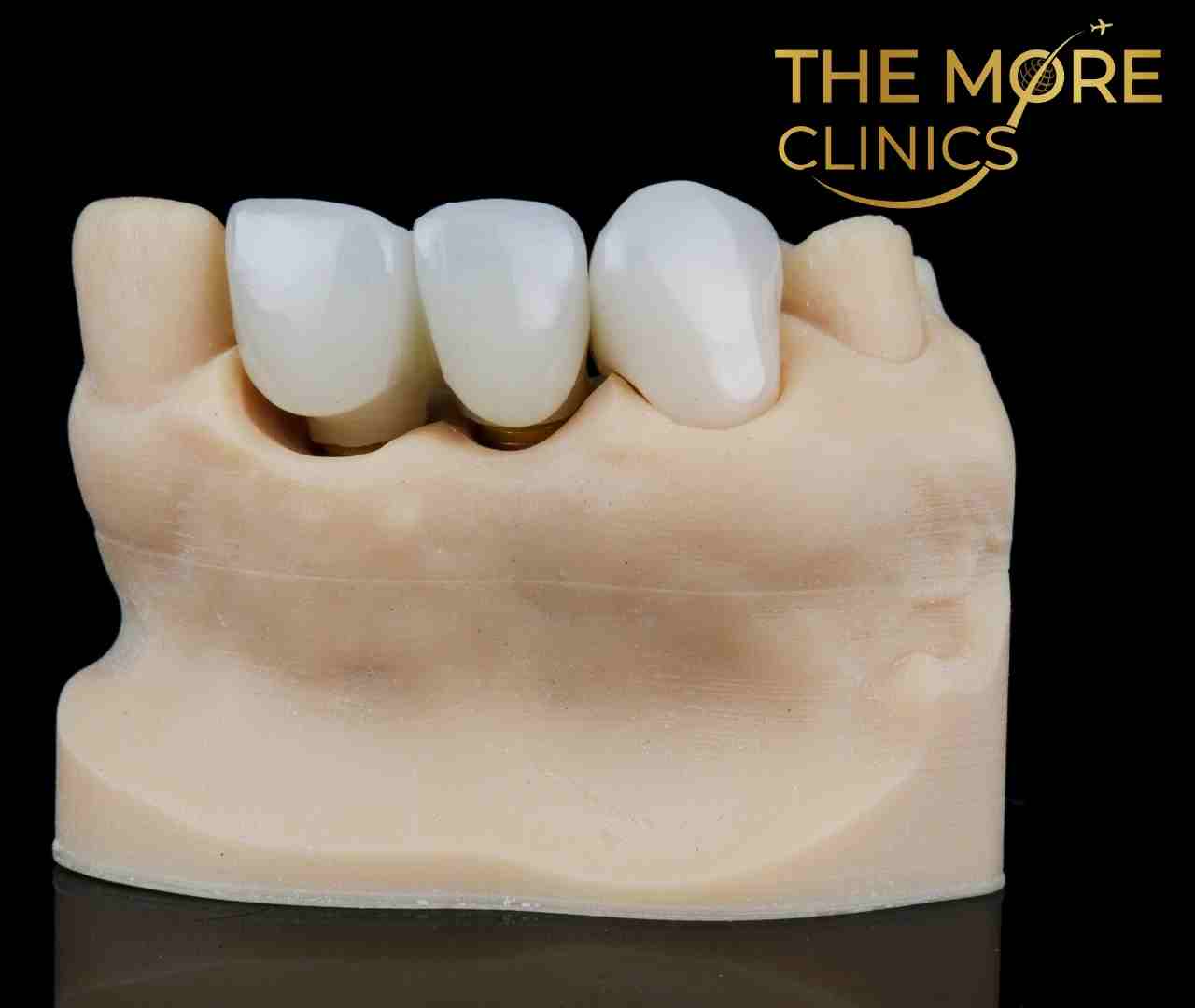
Q: Why does my crown hurt when I put pressure on it?
A: Crown pain when pressure is applied can indicate a few potential issues, such as a high bite (when the crown is interfering with normal bite), an infection, or nerve inflammation. It is essential to consult with your dentist, who can evaluate the crown and surrounding structures to determine the cause and provide necessary treatment.
Q: Why do I feel tightness in my teeth after a crown placement?
A: Feeling tightness in teeth after crown placement may be due to the adjustment of your bite during the procedure. This sensation should subside as your teeth adapt to the new crown. If the tightness persists or is accompanied by discomfort, it is advisable to contact your dentist for a follow-up evaluation.
Q: Why do I experience throbbing tooth pain following crown placement?
A: Throbbing tooth pain after crown placement can be a sign of inflammation or infection in the tooth’s pulp. It is essential to seek prompt dental attention to determine the cause and prevent further complications.
Q: Why is my crown sensitive to cold/hot or touch?
A: Crown sensitivity to cold, hot, or touch can result from several factors, including exposed dentin, nerve inflammation, or an ill-fitting crown. Your dentist will evaluate the crown and underlying tooth structure to identify the source of sensitivity and recommend appropriate treatment options, such as desensitizing agents or crown adjustments.
Q: How long does sensitivity last after a crown?
A: Sensitivity after getting a dental crown typically lasts a few days to a few weeks. If the sensitivity persists beyond this time, it’s important to consult your dentist as it might indicate other underlying issues.
Q: Why does my crown hurt 6 months later?
There are several reasons why does a dental crown might still cause discomfort 6 months later. It could be due to issues like an improper fit, persistent inflammation in the surrounding gum tissue, or an underlying problem with the tooth, such as an infection or nerve damage. In some cases, the bite may not be properly aligned, causing pressure and pain. It’s best to contact your dentist as soon as possible to evaluate the crown and address the discomfort.
Management & Treatment
How to Manage Sensitivity After Crowns
- Communication: If you experience extensive or lasting sensitivity, inform your dentist. They can evaluate your situation and recommend the best treatment for relief.
- Practice Good Oral Hygiene: Continue to brush and floss regularly, but be gentle around the sensitive area. Use a soft-bristled toothbrush and avoid vigorous brushing.
- Try a Saltwater Rinse: Mix one teaspoon of salt in warm water and rinse your mouth with it for about 30 seconds and three times a day. This can help reduce inflammation and discomfort.
- Stay Away From Acidic Foods: Avoid acidic food and drinks, such as citrus fruits and juices, coffee, and carbonated beverages. These can irritate the exposed nerves.
- Switch to a Soft-Bristle Toothbrush: A soft-bristled toothbrush can minimize stress on sensitive teeth. When brushing, using a gentle circular motion and not too much pressure can help.
- Avoid Extremely Hot or Cold Foods and Drinks: Steering clear of extreme temperatures can provide relief to sensitive teeth as your body stabilizes its response over time.
- Wait it Out: Most cases of sensitivity after a dental crown will go away on their own within a few weeks and up to 2 months. Be patient, and practice good oral hygiene to help alleviate discomfort.
Over-the-Counter Remedies for Dental Crown Pain or Sensitivity
- Desensitizing Toothpaste: Over-the-counter desensitizing toothpaste can be a game-changer in managing sensitivity. It works by blocking pain signals from the tooth nerve to the brain.
- Oral Anesthetics: Gels and mouthwashes containing anesthetics can provide temporary relief by numbing the sensitive area.
- Take Over-the-counter Pain Relievers: If your sensitivity is severe, over-the-counter pain relievers like ibuprofen can offer temporary relief.
Professional Treatments
- Resin Adhesives: Your dentist may apply a resin adhesive to the area with special gels. These seal the dentinal tubules—the channels that connect the outside of the tooth to the inside—to reduce sensitivity.
- Fluoride Application: Fluoride treatments can strengthen the enamel, reducing the likelihood of discomfort from hot and cold temperatures.
When to Seek Immediate Help
While most cases of tooth sensitivity can be managed with home remedies and over-the-counter solutions, there are instances when it is crucial to seek immediate professional help. If you experience any of the following, it is recommended to schedule an appointment with your dentist promptly:
- Severe or Prolonged Sensitivity: If your tooth sensitivity is severe, persistent, or worsens over time despite home remedies, it may indicate an underlying dental issue that needs professional evaluation.
- Sharp or Intense Pain: If you experience sharp, sudden, or intense pain in your teeth, or if the pain wakes you up at night, it may be a sign of a more serious condition, such as a tooth fracture, decay, or infection, which requires immediate attention. Throbbing tooth pain following a crown can also indicate an underlying issue that needs prompt evaluation.
- Swelling or Inflammation: Swelling or inflammation around the affected tooth or gums can be a sign of an infection or abscess, necessitating immediate dental care.
- Tooth Damage or Trauma: If tooth sensitivity is a result of a dental injury, such as a broken tooth or knocked-out tooth, it is crucial to seek immediate dental care to assess the extent of the damage and explore suitable treatment options.
Remember, your dentist is the best resource to diagnose and treat the underlying causes of tooth sensitivity. Seeking prompt professional help ensures proper care and prevents potential complications associated with untreated dental issues.
Prevention
Prevention is always better than cure. Here are some helpful tips to prevent tooth sensitivity after getting a dental crown:
Choose an Experienced Provider: Make sure you choose a reputable and experienced dentist for your dental crown procedure.
Follow Post-Procedure Instructions: Your dentist will provide care instructions after your crown placement, be sure to follow them carefully. Read our blog for Dental Crown Aftercare.
Consider Alternative Materials: If you have a history of allergies to certain materials, discuss this with your dentist before the procedure.
Practice Good Oral Hygiene: This cannot be stressed enough. Regular brushing and flossing can help prevent decay and infection, both of which can lead to sensitivity.
Last Words from the More Clinics
Tooth sensitivity after a dental crown is relatively common, but it is usually temporary and manageable. By understanding the potential causes, following proper management techniques, and taking preventive measures, you can ensure a smooth recovery and enjoy the benefits of a healthy, functional, and aesthetically pleasing dental crown. Remember to communicate with your dentist if you experience prolonged or severe sensitivity for proper evaluation and treatment. With proper care and maintenance, your dental crown can last for many years without causing discomfort.
GET A FREE CONSULTATION!
Let’s Start Planning Your Treatment %100 Guarantee Results.
SOURCES:
Journal of American Dental Association (ADA): “Wearing a Crown”
Journal of Natural Science, Biology and Medicine: “Dentin hypersensitivity following tooth preparation: A clinical study in the spectrum of gender”
Risk factors associated with tooth sensitivity in fixed prosthetic treatment
HOW THE MORE CLINICS KEEP THE CONTENT UP TO DATE:
Our dedicated medical and editorial teams work tirelessly to stay informed about the ever-evolving world of health news. By rigorously tracking the latest research, clinical guidelines, and significant developments across various medical fields, they ensure that our content remains accurate, relevant, and up-to-date. This includes reviewing peer-reviewed studies, consulting with healthcare professionals, and monitoring advancements in medical technology. Their meticulous efforts and attention to detail allow us to provide you with trustworthy, reliable information that you can depend on to make informed decisions about your health and well-being.
However, we still insist on getting a healthcare professional’s opinion before you make any decision about your health. Consulting with a qualified expert ensures that the choices you make are informed, safe, and tailored to your individual needs.
Last Uptaded at: January 8, 2025
Medically Reviewed by: Yusuf Algabri, Dt, Cosmetic Dentist


